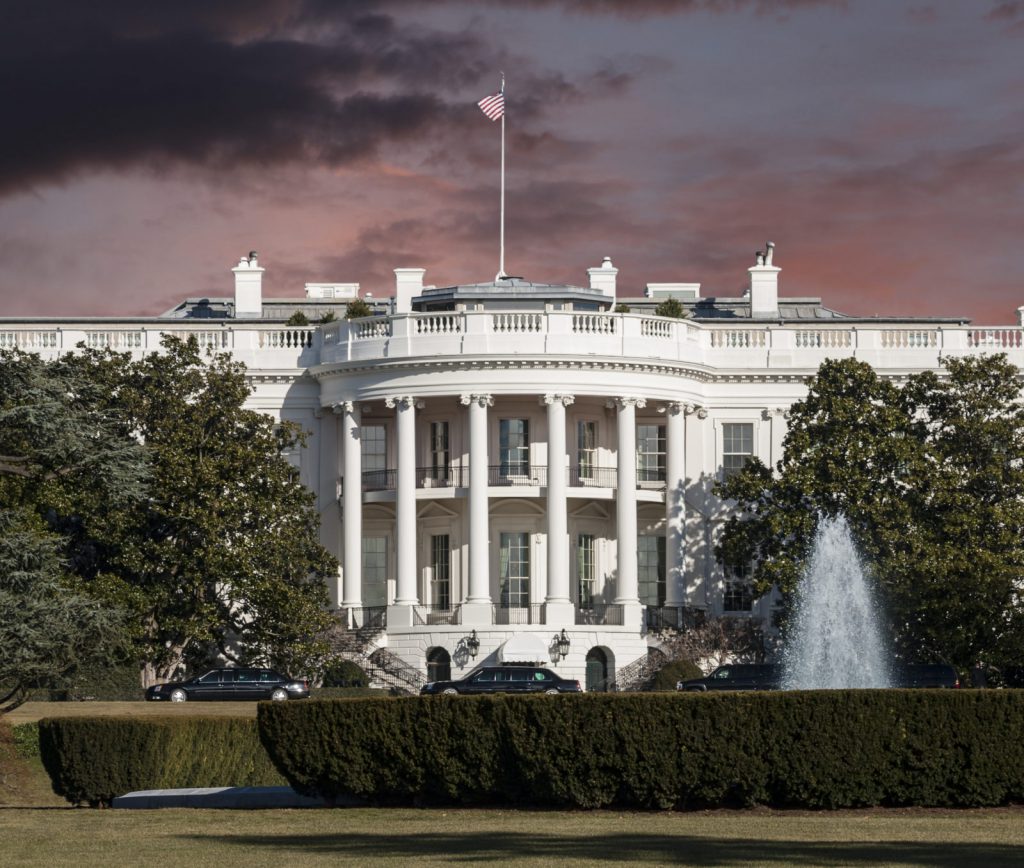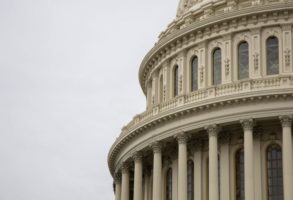
Published October 12, 2017
A couple of weeks ago, I noted around here that it wouldn’t be so easy to put the health-care debate on hold, as many Republicans seemed to want to do, because the administration wasn’t going to just keep administering Obamacare as it had been while legislation was still being considered.
I suggested then that I thought the administration would loosen enforcement of the individual mandate to nearly nothing, would stop making the cost-sharing reduction payments to insurers, and would take a series of steps to provide relief to people in the individual market that could well further unravel the exchanges. “This might be a good time for health wonks to study up on the regulation of short-term, limited-duration insurance, for instance,” I wrote at that point.
Today, the administration began to take just that series of steps. In an executive order signed this morning, the president instructed the departments of Health and Human Services, Labor, and Treasury to begin rule-making processes in three areas. They are to allow short-term health coverage to last a full year and be renewable, to enable the expansion of so-called “association health-plans” that let small employers band together to offer coverage, and to allow employers to offer health-reimbursement arrangements to help their employees pay for coverage and care with pre-tax dollars.
The idea in all three cases is to engage in some deregulation of the sort Republicans were hoping to advance by legislation, but in the absence of such action by Congress. Each move would give some of the people who now find themselves with few options in the individual market some more options and at a lower cost. But because these steps are being taken from within the framework of Obamacare and without new legislation, all three moves are also likely to further destabilize the exchanges and complicate the situation of insurers offering coverage in the individual market. It has been unclear all year whether most Republicans, in Congress and in the administration, view such destabilization as a feature or a bug. And that confusion is likely to increase now, as Congress confronts new pressures to act in the coming months.
By itself, this executive order is rather less than meets the eye. It does not engage in actual deregulation or reform of any kind but rather calls upon the three relevant cabinet departments to begin the process of doing so. That process will have to involve formal rulemaking, which can take time. And the order is very vague about what steps new rules should take.
And yet, I think the order is more significant than that, and much more significant than the very general executive order on health care President Trump signed in his first days in office, which simply stated general principles. This order sets up a process that could actually be fairly quick—proposed rules within 60 days and an expedited procedure for making them final after that. And it comes after some significant preparation by all three departments, so that rules could come much sooner than two months from now, and some could well take effect before the end of the year. This is not a symbolic exercise.
Of the three elements taken up in the order, the expansion of association health plans seems on its face to be the most significant, and is so far being taken as such in much of the early commentary. But it actually seems to me that the expansion of short-term health plans could prove far more important. This is because that change in rules governing short-term plans would have a much more direct effect on the individual market, which is the core of Obamacare, and because it would have its effect much sooner than any changes in association health plans (or in health reimbursement arrangements) could.
The expanded availability of association health plans could in time prove to be a very important added option for some small businesses. A small business looking to offer its employees health coverage could now join together with other businesses in the same state (or multi-state metro area), or with other businesses in its same industry in other states, or with fellow members of a business association to offer insurance coverage together—and therefore under the terms otherwise only available to large employers. This could make a big difference for many small employers. But this is not as significant a reform as what has sometimes gone under the name of association health plans, because it will almost certainly not allow individuals to purchase coverage offered by such plans unless they are offered such coverage by their employers.
Some of the materials put out by the administration in support of today’s order are intentionally vague on this point, and suggest that it will be up to the Department of Labor to figure out if individuals will be able to directly purchase coverage through association health plans. But it seems unlikely to me that allowing such arrangements through an administrative action could be legal under the relevant statute (the Employee Retirement Income Security Act of 1974, known as ERISA). And what the law does allow could turn out to be too limited to be attractive to large numbers of employers.
A little over a decade ago, association health plans were a central plank of the Bush administration’s health-care platform. I was a health staffer in the Bush White House then, and we certainly gave some thought to what might be achievable on that front by administrative action. The conclusion of the lawyers was that the kind of thing we were calling association health plans (which included the notion that civic associations, business and labor groups, churches and the like could offer AHP coverage to individuals who wanted it) could only be achieved by statute—which President Bush pressed Congress to enact, to no avail.
Some basic premises of administrative law have changed (for the worse, so much worse) since that time. The boundaries of what might be achievable by presidential directive were badly deformed by the Obama administration in ways that might well color the Trump administration’s thinking on this front—even if I wish they wouldn’t. But even so, it seems unlikely to me that AHPs could be opened up to individuals without a new law. Maybe self-employed people could buy into them. Maybe. But I don’t think they could go further here.
And whatever new rules are put into place for association health plans, and for health reimbursement arrangements, would require employers and insurers to design new products and so could really only take effect in the next insurance-plan year. They would matter in 2019.
But changes in the governance of short-term, limited duration insurance plans could have more direct effects on Obamacare, and much more quickly. These plans are exempt from many of the regulations that define the captured market of the Obamacare exchanges, and could be an escape valve for some people (especially younger, healthier people) who can’t find attractive coverage in those exchanges. The Obama administration severely limited these plans by regulation, limiting them to a 3-month duration and preventing the sale of renewable plans. Even just getting rid of that rule would open up a meaningful alternative in some states, and would allow states to regulate these plans more loosely than Obamacare now does at the federal level. And this change could happen quickly, since these plans would be offered to individuals and would not be constrained by the plan-year calendar.
While such alternatives could certainly help some of the people now most mistreated in the exchanges, they could also increase costs for some of the people now best served by the exchanges. And by taking some younger and healthier people out of the exchange risk pools, they could further destabilize these already very shaky markets.
That relief is destabilizing is simply a function of the design of Obamacare. There is no getting around it. As Peter Suderman wisely argues today,
The law effectively requires total buy in, from market participants and from political overseers, in order to function. The result is a situation in which the only way to avoid undermining the law is to prop it up. Obamacare is built to allow no alternative and no escape.
This is one of the many ways in which Obamacare is not built to last. It means that any efforts aimed at alleviating key problems with the law threaten to seriously exacerbate other problems with the law. And it therefore means that the defenders and the critics of today’s executive order are both right. The administration is acting to provide much-needed relief to some of the people most hurt by the structure of Obamacare, and it is also acting to destabilize the law and create new problems for some of the people most helped by Obamacare. It is doing both of these things knowingly, even if no one knows exactly how the two sets of effects will play out. And presumably (though this is frankly much less clear) it is doing both of these things based on some assessment of the net effect, and of the relative significance of the problems it is addressing and the problems it is creating.
What is even less clear is whether the administration is acting with some sense of how Congress might respond to pressures created by the further destabilization of the exchanges. It certainly doesn’t seem like Republicans on either end of Pennsylvania Avenue have an actual plan to respond to these pressures at the moment. And I think some pressures are likely, at least in part because today’s action is the first of several. Combined with a formal end to the cost-sharing reduction payments (which will come very soon) and perhaps also with some loosening of the enforcement of the individual mandate, it’s easy to imagine health-care coming back to the top of the congressional agenda pretty quickly, and under circumstances that members of both parties aren’t quite prepared for.
The turn from health-care to tax reform may be very short-lived. We shall see.
Yuval Levin is the Hertog Fellow at the Ethics and Public Policy Center.








